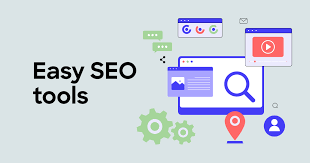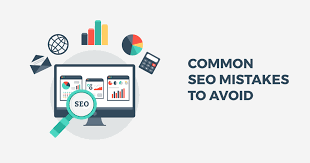1. Introduction to SEO
Search Engine Optimization, commonly known as SEO, is the practice of optimizing your website to rank higher in search engine results pages (SERPs). SEO increases the visibility of your content, attracts more organic traffic, and boosts your chances of success online.(Beginners Guide to SEO)
Table of Contents
If you’re new to digital marketing or blogging, this beginner’s guide to SEO will help you understand the basics and show you how to start implementing SEO on your website step-by-step.

2. Why SEO Matters
Here’s why SEO is crucial in 2025:
- Organic traffic = free traffic
- High rankings build trust and credibility
- Better SEO = better user experience
- Long-term ROI compared to paid advertising
A well-optimized site attracts more clicks, engages visitors longer, and ultimately leads to conversions.

3. How Search Engines Work
Search engines like Google, Bing, and Yahoo work through three main steps:
1. Crawling
Search engines scan the web using bots (called spiders) to discover content.
2. Indexing
They store the content they find in a massive database.
3. Ranking
Algorithms evaluate indexed pages and rank them based on relevance and authority when someone performs a search.

4. Key Components of SEO
To understand SEO better, let’s break it into three categories:
1. On-Page SEO
Optimizing individual web pages for search engines and users.
2. Off-Page SEO
Building authority through backlinks and social signals.
3. Technical SEO
Improving the backend structure of your site to help search engines crawl and index it.

5. On-Page SEO Explained
This includes everything you can control on your website:
- Title tags: Add primary keywords in the title.
- Meta descriptions: Short summaries to entice users.
- Headings (H1, H2, etc.): Organize content with clear headings.
- Content optimization: Use keywords naturally and provide value.
- Internal linking: Link to other relevant pages on your site.
- Image optimization: Add alt text and compress images for speed.
Example: Instead of writing “Click here”, use “Learn how to do SEO the right way”.

6. Off-Page SEO Overview
Off-page SEO involves techniques done outside of your site:
- Backlinks: Links from other websites. Google treats these as votes of confidence.
- Guest posting: Write for other blogs in exchange for a backlink.
- Social media signals: Shares and engagement can indirectly influence rankings.
- Influencer outreach: Get credible mentions and backlinks from industry leaders.

7. Technical SEO Basics
Even if your content is great, poor technical SEO can harm rankings:
- Site speed: Use caching and image optimization.
- Mobile-friendliness: Make sure your site is responsive.
- SSL Certificate (HTTPS): Essential for security and SEO.
- XML sitemap: Helps search engines index your site.
- Robots.txt: Tells search engines which pages to crawl.
- Core Web Vitals: Metrics related to loading speed, interactivity, and visual stability.

8. Keyword Research for Beginners
Without keywords, SEO won’t work.
Steps to Start Keyword Research:
- Brainstorm ideas based on your niche.
- Use tools like:
- Google Keyword Planner
- Ubersuggest
- Ahrefs
- SEMrush
- Choose low-competition, high-volume keywords.
- Focus on long-tail keywords (e.g., “how to optimize images for SEO”).
Bonus Tip: Use your primary keyword in the first 100 words of your content.

9. SEO Tools You Should Use
There are many tools to help you improve your SEO strategy. Here are a few:
- Google Search Console – Monitor performance, fix issues.
- Google Analytics – Understand your visitors.
- Yoast SEO or Rank Math (WordPress plugins) – On-page SEO helpers.
- Ahrefs & SEMrush – Professional keyword and backlink tools.
- Screaming Frog – For technical SEO audits.
- GTmetrix & PageSpeed Insights – Check website loading speed.

10. Common SEO Mistakes to Avoid
Even pros make mistakes. Here are some common SEO errors beginners should avoid:
- Keyword stuffing
- Not optimizing for mobile
- Ignoring technical SEO
- Using duplicate content
- Buying backlinks
- Not updating old posts
- Forgetting internal links
- Missing alt tags on images
Pro Tip: Always focus on user experience and value—Google rewards websites that help users.

11. SEO Trends in 2025
As Google evolves, so should your SEO approach. Watch out for these trends:
- AI-generated content monitoring – Google is getting smarter at detecting low-quality AI content.
- Search Generative Experience (SGE) – AI-powered search results from Google will impact click-through rates.
- Voice search optimization – Use conversational keywords.
- Video SEO – Optimize YouTube videos and embed them.
- E-E-A-T (Experience, Expertise, Authority, Trust) – Google prioritizes trustworthy, expert-created content.
- Mobile-first indexing – Mobile version is now the primary version Google checks.

12. Final Thoughts
SEO isn’t about tricking search engines—it’s about understanding what your audience is looking for and delivering it. It’s a long-term strategy that, when done right, can deliver massive traffic and consistent growth.
Whether you’re a blogger, business owner, or just starting a portfolio website, SEO is the tool that will help your work get noticed online.

Call to Action
Ready to grow your traffic?
- Start with keyword research today
- Optimize your next blog post using the tips in this guide
- Install SEO plugins like Rank Math or Yoast
- Track progress using Google Search Console
SEO is a journey. The sooner you start, the faster you’ll grow.
